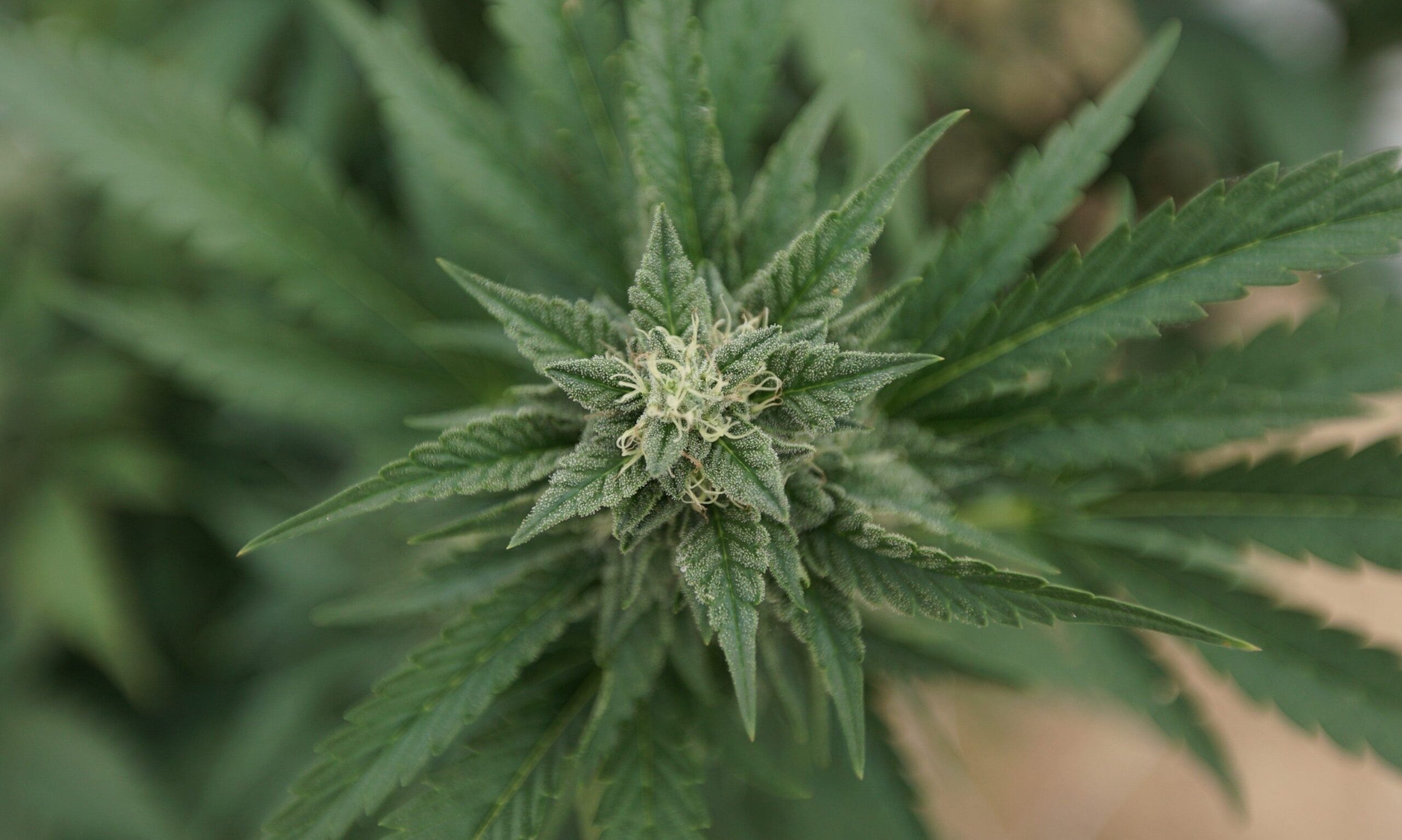featured
Japanese Rebellion: 7 Years in Prison for Smoking Weed… and They Do It Anyway
Published
2 days agoon

Surprisingly, many of the countries that today have the strictest drug policies also hide a history where those same substances were of great cultural significance. For example, Japan once boasted a thriving hemp industry; today, cannabis use carries serious legal and moral penalties. Weed users face a confusing and dangerous political landscape, as well as a deep social stigma.
So, what’s the legal status of the plant in Japan? While medical cannabis is technically legal, a system to endorse it still has to be implemented. As for adult use, this is one of the few countries that, in addition to prohibiting the possession, cultivation, and sale of cannabis, also penalizes consumption. You read that right: in Japan, the simple act of smoking a joint can carry a sentence of up to 7 years in prison.
Remarkably, neither strict regulations nor public shaming and exposure seem to have deterred part of the population from using cannabis. Quite the contrary: arrests related to the plant have been increasing in recent years.
So, it’s worth asking: why do people continue to smoke weed in Japan? Why risk spending almost a decade behind bars (not to mention the enormous social stigma) for a simple joint?
These were the questions that led Dr. Yuji Masataka‘s team, a member of the Japanese Clinical Association of Cannabinoids (JCAC), to conduct this research, published in Drug Science, Policy and Law. We spoke directly with Dr. Masataka, who has an interesting track record in cannabis education in the country, with projects like Green Zone Japan under his belt.
Why do you smoke weed? Japanese people answer
This isn’t the first time Dr. Masataka’s team has embarked on this line of research. In 2021, they conducted a survey with more than 4,000 responses from Japanese cannabis users—the largest cross-sectional study of its kind ever conducted there. It was from these results that they concluded “the actual health risks associated with cannabis use may not be as high as widely assumed,” explains Masataka.
To delve deeper into the issue, the researchers conducted a series of interviews that would become the Smoker’s Story Project. Inspired by Paul Auster’s National Story Project, “we aimed to collect and share individual stories on a public website,” explains Masataka. “While each account was personal and unique, we believed that compiling them would begin to reveal a broader picture of cannabis use in Japan.”
And indeed, it did. The current research project features interviews with 64 Japanese people (39 men and 25 women) over the age of 20. While this sample may seem small and is not meant to be representative, it is larger than the researchers expected. “We were initially concerned that people would be hesitant to speak about their illegal behavior—but to our surprise, more participants volunteered than we had expected,” Masataka admits. “We believe this was largely due to the trust we had built within the community through our ongoing public education work under Green Zone Japan since 2017.”

Most participants shared that they were introduced to the plant through friends or close associates, largely out of curiosity. Despite initial anxiety or mistrust, firsthand experience quickly demonstrated the low risk associated with cannabis: in fact, many came to view it as less dangerous than tobacco or alcohol. On the other hand, this initial exposure often occurred “in the context of psychological distress or adverse life experiences,” such as bullying, abuse, strained family relationships, or work-related stress.
However, continued weed use is related to a broader range of factors. The pleasurable psychoactive effects and relaxation are strong motivations, but many also admitted to using the plant to improve their physical and mental health. Relief from anxiety, stress, depression, or pain was a highly reported motivation in the sample.
Likewise, some people turned to cannabis as a form of self-treatment, for example to stimulate appetite. Others even substituted other substances (such as prescription medications or alcohol) with marijuana. This point is particularly interesting, as the use and abuse of over-the-counter and/or prescription medications has become a public health concern in Japan. These anecdotal reports add to the growing evidence that cannabis can serve as a replacement for these drugs (which are objectively more dangerous and not always effective against symptoms), or as a harm reduction tool.
Additionally, those surveyed mentioned a wide range of benefits that go beyond mental health in its strictest sense, more linked to well-being, self-care, and personal development. The increased creativity, motivation, and enhanced sensory perception brought on by weed helped many function better in personal or professional settings. Others use it as a tool to promote emotional growth and enrich both their inner world and everyday experiences.
Its use was also reported to alleviate difficult or stressful emotional situations (parenthood was mentioned in some cases). Shy individuals, meanwhile, reported improvements in their ability to communicate, connect, relax, and feel confident thanks to the plant. Several respondents also attributed it to “fostering a more compassionate and optimistic mindset.” All of these factors help manage the stress of today’s world, improving quality of life.
“Cannabis users in Japan are often reduced to stereotypes, but their actual reasons for using are complex, personal, and deeply human,” reflects Masataka. “Our research gives them a voice and shows why people continue to use cannabis even under such harsh laws.”
Of course, the plant is not exempt from unpleasant side effects (such as dry mouth or fatigue), but the interviewees generally found them of little concern. In fact, the “gateway drug” hypothesis—the idea that using marijuana will inevitably lead to harder drugs—was roundly rejected. What’s more: for these participants, the most negative factor about cannabis is simply its illegality.
What a Paradox: Japan, Marijuana, and Health
As previously mentioned, cannabis’ current situation in Japan is relatively new. Until less than 100 years ago, says Dr. Masataka, hemp cultivation was deeply rooted in cultural and agricultural traditions, used for textile and religious purposes. It wasn’t until World War II that prohibitionist policies were adopted, courtesy of US occupation forces (along with a host of other measures and practices that continue to harm the Japanese people to this day).
“Over time, this law [the Cannabis Control Act], combined with aggressive anti-drug campaigns—transformed cannabis in the public eye from a traditional crop into a symbol of criminality and moral decay,” the doctor explains.
In Japan, drug use is still viewed as a moral failing rather than a public health issue. “Media coverage and government messaging tend to lump all drugs under a single banner of danger,” Masataka explains. “As a result, cannabis users face not only legal consequences but also deep social stigma. However, we are starting to see a slow shift in public discourse. There is growing interest in distinguishing medical use from recreational use, especially as global trends evolve.”
In fact, one of the study’s most revealing findings is the enormous gap between the Japanese government’s prohibitionist rhetoric and reality. Currently, cannabis education provided by authorities comes across as extremist, not to mention outright false. Thus, the research highlights the discrepancy between the stereotypes about cannabis users promoted by drug education and the experiences of actual users.
Current drug education is plagued with claims such as “a single use can lead to dependence,” according to the research. 100% of the testimonies received agree with the overwhelming evidence accumulating against this rhetoric.
In fact, as Dr. Masataka explains, “there has been very little research on whether cannabis use actually causes harm to users’ health.”
It should be noted that this situation poses several problems. On the one hand, people may underestimate the risks that do exist around substance use. Indeed, informed and responsible use is always safer than clandestine and blind consumption.
On the other hand, fear of repercussions can lead them to not inform their healthcare professionals about their use. According to the study, some patients have paused prescribed treatments without informing their doctors, not to mention the fact that cannabinoids can interact with certain medications. Therefore, informed support is crucial.
Properly educating the medical and scientific community will help protect the population from the real risks, not only of drugs, but also of ignorance. This is why the study advocates for establishing “legitimate pathways for medical cannabis use,” and sharing data on said use to “improve patient-centered care and contribute to the development of more effective, evidence-based healthcare services.”
What’s more, biased misinformation spread by authorities not only undermines the health (and, why not, the intelligence) of the population: it also erodes public trust in institutions, as stated by the research.
How the Future of Cannabis in Japan Could Be Different
The team behind the study hopes that their findings “help foster better public understanding and spark meaningful discussions about cannabis use and policy in Japan.”
“By highlighting that many users turn to cannabis for self-care, stress relief, or symptom management—often in the absence of other accessible options—we hope policymakers will recognize the need to create safe, legal, and medical frameworks to support those needs,” says Masataka. “Our long-term goal is to reduce harm by replacing criminalization with compassionate, evidence-based approaches.”
It’s also worth noting that Japan is amidst an unprecedented mental health crisis. While not a particularly original development (the number of countries or regions in the same situation does nothing but increase), the country’s suicide rate is one of the highest in the world.
The experiences shared by users (as well as research from around the world) strongly suggest that marijuana could help with this situation. Furthermore, let’s remember the plant serves as an alternative to addictive opioids, which are a serious problem in Japanese society. In this context, the Japanese government seems to be shooting itself in the foot.
But all is not lost. According to Dr. Masataka, several measures could improve the situation. First, it is essential to introduce medical cannabis frameworks to ensure safe and legal access for patients. The doctor also advocates reforming criminal penalties for simple possession and use, focusing on harm reduction rather than punishment. It is also imperative to promote public education “based on science, not fear, so that people can make informed decisions.”
Fortunately, such an approach is gaining popularity among political actors around the world, and while it continues to encounter resistance among more conservative sectors, the infamous War on Drugs seems to have its days numbered.
This article was first published on El Planteo.

Author: mscannabiz.com
MScannaBIZ for all you Mississippi Cannabis News and Information.
You may like
-


Klutch Cannabis Opening 5th Ohio Dispensary in Northfield
-


Undercover video exposes illegal THC sales at North Texas vape shops
-


Book Review: The Traveling Cannabis Writer’s Guide to America’s Hidden Gems
-


WKRN: marijuana reclassification impact
-


Texas Senators Unanimously Pass Hemp THC Ban Bill Hours After Governor Convenes Second Special Session
-


New York’s cannabis agency allowed dispensaries to open too close to schools | Videos
featured
Klutch Cannabis Opening 5th Ohio Dispensary in Northfield
Published
10 minutes agoon
August 15, 2025
[PRESS RELEASE] – NORTHFIELD VILLAGE, Ohio, Aug. 15, 2025 – Klutch Cannabis, one of Ohio’s leading vertically integrated cannabis companies, announced the grand opening of its newest dispensary, located at 10650 Northfield Road in Northfield Village, Ohio. Doors will officially open at 10 a.m. Aug. 21, 2025.
The new location marks Klutch’s first dispensary in Summit County, where the company is headquartered. Conveniently situated directly across the street from the MGM Northfield Park Casino and Racetrack, the dispensary is easily accessible from Route 8 and I-271, finally bringing much-needed access to medical cannabis patients and adult-use consumers in Northern Summit County communities, including Northfield Village, Macedonia, Northfield Center Township, Twinsburg, Hudson, Sagamore Hills, Boston Township, Richfield Township, Bath Township, and more.
The expansion further solidifies Klutch’s retail footprint in Northeast Ohio and represents an important milestone as the company begins delivering its renowned top-shelf products on its home turf. Offerings will include exclusive drops and limited releases along with customer favorites from the company’s Klutch Cannabis and Habitat by Klutch lines, its Ohio-exclusive brand partners, and other Ohio cannabis companies. The Northfield dispensary will also feature Klutch’s signature aesthetic and exceptional customer service, as well as a convenient drive-thru pickup window for pre-orders.
Hours of operation for the new Northfield Village location will be:
- 10 a.m. to 10:45 p.m. Thursday through Saturday
- 10 a.m. to 10 p.m. Sunday through Wednesday
“We’re incredibly excited to expand Klutch Cannabis’s retail footprint to Summit County,” Klutch founder and CEO Adam Thomarios said. “This location has been years in the making and will finally provide patients and adult-use customers in Northern Summit County with access to the quality, care, and consistency that Klutch is known for. Our thanks go out, especially, to the community, administration, and officials in Northfield Village for being such great partners from the start. The Village is a great place to do business, and we can’t wait to start making a positive impact in the community.”
For more information about Klutch Cannabis, its dispensaries, and its award-winning products, visit KlutchCannabis.com and HabitatbyKlutch.com or follow @KlutchxCommunity and @HabitatbyKlutch on Instagram.

Author: mscannabiz.com
MScannaBIZ for all you Mississippi Cannabis News and Information.
featured
Book Review: The Traveling Cannabis Writer’s Guide to America’s Hidden Gems
Published
1 hour agoon
August 15, 2025
Every so often, a cannabis book comes along that feels like it has been missing from the shelf for years. Veronica “Vee” Castillo’s Cannabis Legacy Chronicles Series: The Traveling Cannabis Writer’s Guide to America’s Hidden Gems – Part 1: The 30,000-Foot View is one of those rare finds.
We read it cover to cover and it is clear: Vee has built something more than a travelogue. This is six years of crisscrossing the United States, living out of suitcases, rental cars, and guest rooms, documenting over 200 stories that mainstream media rarely touches.
The book brims with voices from every corner of the cannabis map: Black, Brown, and woman-owned businesses, legacy cultivators preserving genetics through prohibition, Caribbean entrepreneurs blending tradition with modern cannabis tourism, and women who left corporate jobs to open dispensaries, grow medicine, and build communities.
What sets it apart is Vee’s perspective. She writes like someone who has been in the grow rooms, sat at the kitchen tables, and walked the fields, not parachuting in for a quick profile but staying long enough to see the heartbeat of each place. Her chapters on women innovators, cultural preservation, and equity-driven tourism do not just inform, they inspire.
This is not a story about cannabis, the commodity. It is about cannabis, the connector.
If you care about the soul of this industry, if you want to see the people and places that make cannabis culture rich and resilient, this book delivers. It is equal parts history, advocacy, and celebration, wrapped in storytelling that is as authentic as it gets.
Vee will soon be bringing that same depth of reporting to High Times, and if Cannabis Legacy Chronicles is any indication, readers are in for something special.
We cannot recommend it enough. Grab your copy of Cannabis Legacy Chronicles: Part 1 here and see why we are so excited to welcome her to the High Times family.

Author: mscannabiz.com
MScannaBIZ for all you Mississippi Cannabis News and Information.
featured
Texas Senators Unanimously Pass Hemp THC Ban Bill Hours After Governor Convenes Second Special Session
Published
2 hours agoon
August 15, 2025
The governor of Texas has convened another special session—again directing lawmakers to advance legislation regulating consumable hemp and setting an age limit to access cannabinoids. Within hours, a Senate committee quickly and unanimously approved a reintroduced bill that would simply ban hemp THC products in contravention of Gov. Greg Abbott’s (R) call for regulation.
After Democratic House lawmakers staged a walkout during the first special session Abbott convened—denying the chamber a quorum in protest of a proposed redistricting plan for the state’s congressional map—the governor on Friday issued a proclamation to start a second special session. The session cannot last longer than 30 days under the state constitution, but there’s no limit on how many can be called.
On the same day Abbott declared the new session, the Senate State Affairs Committee quickly passed a reintroduced hemp bill from Sen. Charles Perry (R) in a 9-0 vote.
The legislation would continue to outright ban cannabis products with “any amount” of cannabinoids other the CBD and CBG. Even mere possession of a prohibited cannabis item would be punishable as a Class B misdemeanor, carrying up to 180 days in jail and a $2,000 fine.
The governor’s latest proclamation also renews his call for legislation “making it a crime to provide hemp-derived products to children under 21.”
But while Perry’s bill that moved through committee would impose a complete ban on hemp containing any THC, Abbott said in his latest proclamation that he wanted to see a measure sent to his desk that would “comprehensively regulate hemp-derived products, including limiting potency, restricting synthetically modified compounds, and establishing enforcement mechanisms, all without banning lawful hemp-derived products.”
Heather Fazio, director of the advocacy group Texas Cannabis Policy Center, told Marijuana Moment on Friday that the group is “disappointed to see the senate suspend their own rules to circumvent public notice requirements, disenfranchising the many Texans who would have testified in opposition to SB 6.”
“This is yet another sweeping ban on THC products,” she said. “Most Texans agree with Governor Abbott: The Texas legislature should regulate, not ban, THC products.”
(Disclosure: Fazio supports Marijuana Moment’s work via monthly Patreon pledges.)
An initial version of the governor’s new proclamation for the second special session said cannabinoid products should be age-gated to prohibit access for people under 18, but that was quickly revised and republished with the age limit of 21—similar to the call for the prior special session—for reasons that are unclear.
The proclamation for the new session also specifies that regulations should not ban “lawful hemp-derived products,” whereas the proclamation for the first session referenced a “lawful agricultural commodity.”
Special Session #2 begins immediately.
There is critical work that is left undone.
Texas will not back down from this fight.
That’s why I am calling them back today to finish the job.
Read my Special Session #2 agenda here: https://t.co/z9i949oQCw pic.twitter.com/jVE4S9hHAS
— Greg Abbott (@GregAbbott_TX) August 15, 2025
Hemp advocates and industry stakeholders say that would effectively eradicate the state’s market, as there are very few businesses that manufacture isolated CBD or CBG products that contain no traces to THC or other cannabinoids. Federal law allows hemp products containing up to 0.3 percent THC by dry weight.
A similar bill from Perry passed the Senate during the first special session but did not advance in the House.
The other new bill filed for the second special session from Rep. Charlie Geren (R) would follow the governor’s directive to make it so consumable hemp products could only be purchased by adults 21 and older.
Ahead of the end of the first special session, the House Public Health Committee took up the prior bill to ban consumable hemp products containing THC, without taking action on it.
Abbott vetoed an earlier version of the controversial proposal that passed during this year’s regular session, and he more recently outlined what he’d like to see in a revised version of the bill.
Some, including Lt. Gov. Dan Patrick (R) and Senate bill sponsor Perry, have insisted that an outright ban is a public safety imperative to rid the state of intoxicating products that have proliferated since the crop was federally legalized in 2018. Others say the legislature should instead enact regulations for the market to prevent youth access while still allowing adults 21 and older to access the products and preserving the massive industry.
—
Marijuana Moment is tracking hundreds of cannabis, psychedelics and drug policy bills in state legislatures and Congress this year. Patreon supporters pledging at least $25/month get access to our interactive maps, charts and hearing calendar so they don’t miss any developments.![]()
Learn more about our marijuana bill tracker and become a supporter on Patreon to get access.
—
Meanwhile, Abbott in June signed a bill into law that expanded the state’s list of medical cannabis qualifying conditions, adding chronic pain, traumatic brain injury (TBI), Crohn’s disease and other inflammatory bowel diseases, while also allowing end-of-life patients in palliative or hospice care to use marijuana.
Texas officials took another step toward implementing that law this week—posting a draft of proposed rules to let physicians recommend new qualifying conditions for cannabis and create standards for allowable inhalation devices.
That came about a week after the the Department of Public Safety (DPS) previewed a separate set of rules to increase the number of licensed dispensaries under recently passed legislation.
During the first special session, Rep. Nicole Collier (D) introduced a one-page bill, HB 42, designed to protect consumers in the state from criminal charges if what they believed was a legal hemp product turned out to contain excessive amounts of THC, making it illegal marijuana. It would prevent the criminalization of someone found in possession of a product that’s labeled as hemp but is determined to contain “a controlled substance or marihuana.”
In order for the person to obtain the legal protection, the product would need to have been purchased “from a retailer the person reasonably believed was authorized to sell a consumable hemp product.”
Another bill—HB 195, introduced by Rep. Jessica González (D)—would legalize marijuana for people 21 and older, allowing possession of up to 2.5 ounces of cannabis, with no more than 15 grams of that amount being in concentrated form.
Yet another proposal would order state officials to conduct a study on testing for THC intoxication.
As for what Texans themselves want to see from their representatives, proponents of reining in the largely unregulated intoxicating hemp industry in Texas shared new polling data indicating that majorities of respondents from both major political parties support outlawing synthetic cannabinoids, such as delta-8 THC.
The survey also found that respondents would rather obtain therapeutic cannabis products through a state-licensed medical marijuana program than from a “smoke shop selling unregulated and untested hemp.”
Ahead of the governor’s veto in June of SB 3—the earlier hemp product ban—advocates and stakeholders had delivered more than 100,000 petition signatures asking Abbott to reject the measure. Critics argued that the industry—which employs an estimated 53,000 people—would be decimated if the measure became law.
Photo courtesy of Chris Wallis // Side Pocket Images.

Author: mscannabiz.com
MScannaBIZ for all you Mississippi Cannabis News and Information.

Klutch Cannabis Opening 5th Ohio Dispensary in Northfield

Undercover video exposes illegal THC sales at North Texas vape shops

Book Review: The Traveling Cannabis Writer’s Guide to America’s Hidden Gems

WKRN: marijuana reclassification impact

Texas Senators Unanimously Pass Hemp THC Ban Bill Hours After Governor Convenes Second Special Session

New York’s cannabis agency allowed dispensaries to open too close to schools | Videos

Texas, California Governors Collide Over Redistricting; Hemp Lies in the Crosshairs

Texas Lawmakers Will Continue Pursuing Hemp Product Restrictions In Second Special Session

Over 2,000 plants uncovered at marijuana grow-op in Brantford

Trucking Industry Group Is ‘Deeply Concerned’ About Marijuana Rescheduling’s Potential Impact On Drug Testing For Drivers

The Best Late Summer Cocktails

#1to3: The Social Media Campaign Urging Trump To Reschedule Cannabis — And How You Can Help

Report Predicts Global Psychedelic Drugs Market Will Reach $22.6B by 2033

New York allowed pot shops to open too close to schools. Now they might have to move

Medical Marijuana ‘Significantly’ Decreases Use Of Opioids By Chronic Pain Patients, New Study Finds

Trump signals push to finish Biden’s marijuana reform

Senator Secures Half A Million Dollars For Research On Hemp, Calling It ‘One Of The Oldest And Most Versatile Crops In Agriculture’

Take in the open house celebration of the fifth Klutch Cannabis dispensary location in Ohio

Trump’s MAGA base is torn over cannabis rescheduling (Newsletter: August 15, 2025)

Trump Might Reclassify Marijuana. He Should Do This Instead

OMMA says recent cannabis product retest is an immediate public health and safety risk | News

From The Vault: DEAL for REAL (1978)

Court throws out part of New York’s marijuana licensing rules

Marijuana Is A ‘Promising Treatment’ For Women Struggling To Achieve Orgasm, Scientific Review Shows

Alert: Department of Cannabis Control updates data dashboards with full data for 2023

Connecticut Appoints The US’s First Cannabis Ombudsperson – Yes there is a pun in there and I’m Sure Erin Kirk Is Going To Hear It More Than Once!

5 best CBD creams of 2024 by Leafly

EU initiative begins bid to open access to psychedelic therapies
New Study Analyzes the Effects of THCV, CBD on Weight Loss

Free delta-9 gummies from Bay Smokes

5 best autoflower seed banks of 2024 by Leafly

Discover New York’s dankest cannabis brands [September 2024]

Curaleaf Start Process Of Getting Their Claws Into The UK’s National Health System – With Former MP (Resigned Today 30/5/24) As The Front Man

May 2024 Leafly HighLight: Pink Runtz strain

Mississippi city official pleads guilty to selling fake CBD products

Press Release: CANNRA Calls for Farm Bill to Clarify Existing State Authority to Regulate Hemp Products

Local medical cannabis dispensary reacts to MSDH pulling Rapid Analytics License – WLBT

Horn Lake denies cannabis dispensary request to allow sale of drug paraphernalia and Sunday sales | News

5 best THC drinks of 2024 by Leafly

Nevada CCB to Accept Applications for Cannabis Establishments in White Pine County – “Only one cultivation and one production license will be awarded in White Pine County”

6 best CBD gummies of 2024 by Leafly

The Daily Hit: October 2, 2024

5 best delta-9 THC gummies of 2024 by Leafly

Weekly Update: Monday, May 13, 2024 including, New Guide for Renewals & May Board meeting application deadline

PRESS RELEASE : Justice Department Submits Proposed Regulation to Reschedule Marijuana

People In This State Googled ‘Medical Marijuana’ The Most, Study Shows

Thailand: Pro-cannabis advocates rally ahead of the government’s plan to recriminalize the plant

5 best THCA flower of 2024 by Leafly
Trending
-

 California Cannabis Updates1 year ago
California Cannabis Updates1 year agoAlert: Department of Cannabis Control updates data dashboards with full data for 2023
-

 Breaking News1 year ago
Breaking News1 year agoConnecticut Appoints The US’s First Cannabis Ombudsperson – Yes there is a pun in there and I’m Sure Erin Kirk Is Going To Hear It More Than Once!
-

 best list1 year ago
best list1 year ago5 best CBD creams of 2024 by Leafly
-

 Business11 months ago
Business11 months agoEU initiative begins bid to open access to psychedelic therapies
-

 cbd1 year ago
cbd1 year agoNew Study Analyzes the Effects of THCV, CBD on Weight Loss
-

 Bay Smokes1 year ago
Bay Smokes1 year agoFree delta-9 gummies from Bay Smokes
-

 autoflower seeds11 months ago
autoflower seeds11 months ago5 best autoflower seed banks of 2024 by Leafly
-

 cannabis brands11 months ago
cannabis brands11 months agoDiscover New York’s dankest cannabis brands [September 2024]




